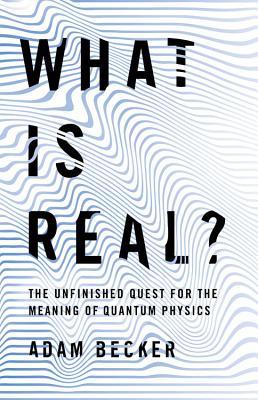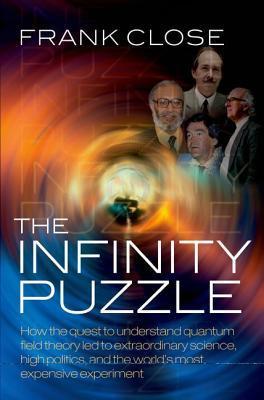
What Is Real?: The Unfinished Quest for the Meaning of Quantum Physics
Book Description
What if everything you thought you knew about reality was wrong? In "What Is Real?", Adam Becker takes you on a thrilling journey through the enigmatic world of quantum physics, where particles dance in uncertainty and perceptions shatter like glass. Scientists clash in a battle for understanding, while the very fabric of existence hangs in the balance. Explore the profound implications of this groundbreaking science, questioning the nature of reality itself. As theories evolve and mysteries deepen, one burning question remains: what does it truly mean to comprehend the universe's secrets?
Quick Book Summary
"What Is Real?" by Adam Becker delves into the philosophical and scientific debates surrounding quantum physics, particularly the controversy over what quantum theory truly says about reality. The book traces the journey from the early days of quantum mechanics, focusing on the dominant Copenhagen interpretation—which asserts that unobservable quantum states only become real upon measurement—to its challengers who demand a more coherent description of objective reality. Becker brings to life the personalities and ideas of key figures, like Niels Bohr, Albert Einstein, and Hugh Everett, showing how their views shaped modern physics and philosophy. Ultimately, Becker argues that the core questions about the meaning of quantum mechanics remain unresolved, inviting ongoing inquiry into the nature of existence itself.
Summary of Key Ideas
Table of Contents
The philosophical divide over quantum reality
The story begins with the foundations of quantum mechanics, emerging in the early twentieth century as physicists attempted to make sense of bizarre experimental findings. Pioneers such as Niels Bohr and Werner Heisenberg proposed the Copenhagen interpretation, which sidestepped deep questions about objective reality by asserting that a quantum system’s properties don't have values until measured. This view both mystified and frustrated other scientists, notably Albert Einstein, who insisted that physical reality must exist regardless of observation.
The dominance and critiques of the Copenhagen interpretation
Despite Einstein’s objections, the Copenhagen interpretation became physics orthodoxy, shaping generations of scientific thinking. Critics of this viewpoint were often marginalized or dismissed, with the mainstream scientific community discouraging philosophical inquiries into the meaning of the quantum wavefunction or the reality of unseen processes. The book captures the sense of intellectual control and even dogmatism that stymied alternative conceptions for decades.
Unsung pioneers and alternative interpretations
Becker revitalizes the stories of lesser-known physicists like Hugh Everett, whose "many-worlds" theory, conceived in the 1950s, offered a radical alternative in which all possible outcomes of quantum events actually occur, branching reality into countless worlds. These creative but initially overlooked attempts to explain quantum phenomena demonstrate the vibrancy and diversity of thought beneath the surface of scientific consensus, challenging the idea that the Copenhagen interpretation is the final word.
The interplay between physics and philosophy
Alongside scientific developments, the book highlights the philosophical stakes of the debate. Quantum mechanics blurs the boundaries between observer and observed, undermining classical notions of determinism and objective reality. Philosophers and physicists alike grappled with questions such as: Are there facts about the world that exist independently of measurement, or is reality fundamentally observer-dependent?
The enduring question of what is scientifically real
In his closing analysis, Becker reveals that many fundamental questions remain unanswered: Is the wavefunction a statement of knowledge or a real entity? Can objective reality survive the strangeness quantum mechanics imposes? "What Is Real?" ultimately contends that questioning and investigating the true meaning of quantum mechanics is not only necessary but also a vital, ongoing part of probing the universe’s deepest mysteries.
Download This Summary
Get a free PDF of this summary instantly — no email required.





